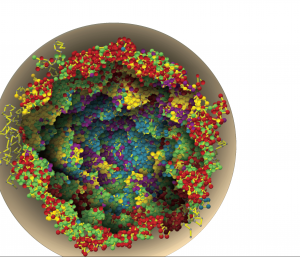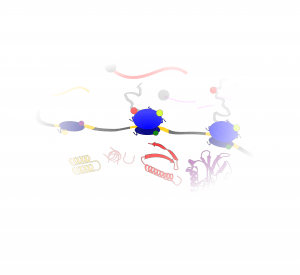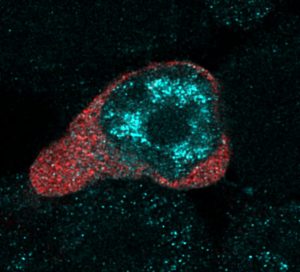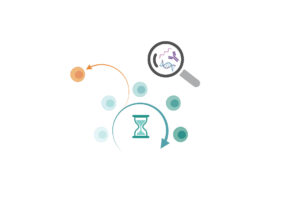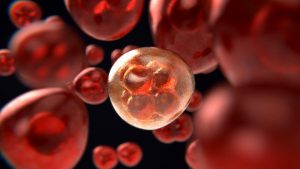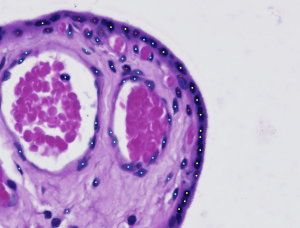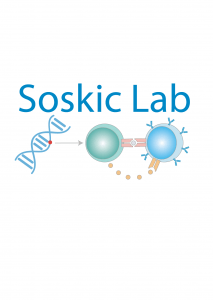
Genomics
HEAD - Functional Genomics: Piero Carninci HEAD - Population & Medical Genomics: Nicole SoranzoThe Genomics Research Centre will pursue research aimed at uncovering the complex mechanisms governing gene expression and how heritable genetic information translates into phenotypic traits.
Applied to humans, and in the context of precision medicine, this type of research can identify molecular targets and markers for disease prevention, early detection, and personalised treatment. In addition to carrying out genetic and genomic studies with a focus on (but not limited to) disease-associated mechanisms, the Genomics Research Centre will promote and help implement large-scale genomic screening projects for patient stratification.
The Genomics Research Centre will be composed of two complementary research programmes in Population and Medical Genomics (i.e. the use of genomic information to pinpoint the genetic causes of specific defects) and in Functional Genomics (i.e. the development and use of new methods to study the relation between the individual genome and biological function).
Research groups
-
Bienko Group
The Bienko Lab at HT aims at understanding the design principles and mechanisms that shape the spatial arrangement of DNA, RNAs and proteins in the nucleus of mammalian cells. We investigate how the three-dimensional (3D) architecture of the genome instructs and/or is instructed by fundamental processes including DNA replication, transcription, and repair. We are particularly […]
-
Calviello Group
The Calviello Group is a new multidisciplinary research group in the Genomics Research Centre – Functional Genomics Programme, adjunct with the Computational Biology Research Centre starting from September 2021. The group studies post-transcriptional gene regulation, employing computational and experimental methods revolving around the -omics of translation, a fundamental process which dictates the functions of transcribed […]
-
Carninci Group
The Carninci Group strive to develop and broadly use technologies to comprehensively study the non-protein-coding part of the genome, its function and interactome.
-
Domínguez Conde Group
The Domínguez Conde Group is a newly established research team in the Medical & Population Genomics programme of the Genomics Research Centre. We aim to understand early-life human immunity and immune-mediated diseases in children using cutting-edge genomic and computational methods. Our group leverages the unprecedented power of single-cell multimodal technologies to identify cellular phenotypes associated […]
-
Giustacchini Group
Molecular and cytotoxic therapies have shown the ability to induce disease remission in cancer patients, but often there remains minimal residual disease, acting as a reservoir for therapy resistance and eventual relapse. It is essential to comprehend the mechanisms behind therapy escape in order to develop effective therapeutic strategies that can lead to complete disease […]
-
Glastonbury Group
The Glastonbury Group applies and develops machine learning methods to understand the genetic basis of a range of complex diseases. With the advent of population scale biobanking, rich data modalities are being collected on hundreds of thousands of individuals. One such data type is imaging data, a high dimensional and information rich modality for human […]
-
Legnini Group
Laboratory for Molecular and Systems Biology of RNA The Legnini Group at Human Technopole combines molecular and systems biology approaches to study gene regulation. We use synthetic biology and optogenetics to engineer cells and organoids with the aim of reproducing complex regulatory cascades, then apply integrative transcriptomic readouts to understand the principles of gene […]
-
Soranzo Group
Soranzo Lab – Genetic basis of complex human traits Understanding how genetic variation influences human traits and disease is one of the great challenges of modern biology and medicine. Our team uses high-resolution, population-scale genomic analyses of phenotypes representing different hierarchical levels of gene regulation, cellular and organismal phenotypes,to unravel these complex relationships. The lab […]
-
Soskic Group
Immune-mediated diseases are chronic and disabling conditions affecting large number of people. Genome wide association studies (GWAS) have mapped hundreds of risk loci associated with immune-mediated diseases, opening up a tremendous potential to discover disease mechanisms and identify new drug targets. However, disease variants are difficult to study as they are often in non-coding regions […]
Centre members
-
 Nicole Soranzo
Nicole Soranzo
Head of Genomics Research Centre - Population & Medical Genomics -
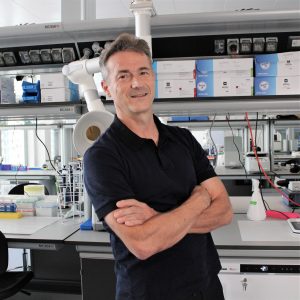 Piero Carninci
Piero Carninci
Head of Genomics Research Centre – Functional Genomics -
 Lorenzo Calviello
Lorenzo Calviello
Research Group Leader -
 Alice Giustacchini
Alice Giustacchini
Research Group Leader -
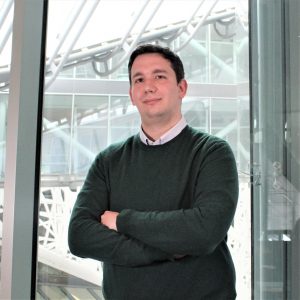 Blagoje Soskic
Blagoje Soskic
Research Group Leader -
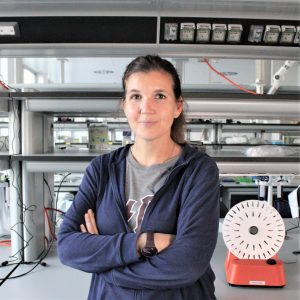 Alessandra Alberta Albertini
Alessandra Alberta Albertini
Technician, Genomics Technologies Development Scientific Service Unit -
 Bruno Ariano
Bruno Ariano
Bioinformatician -
 Luisa Bellieni
Luisa Bellieni
Research Centre Administrator -
 Magda Bienko
Magda Bienko
Research Group Leader -
 Costanza Cantalini
Costanza Cantalini
Undergraduate Intern -
 Cinzia Ceccarelli
Cinzia Ceccarelli
Senior Scientific Project Manager -
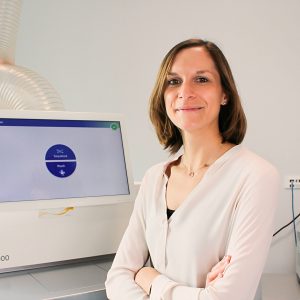 Chiara Chiereghin
Chiara Chiereghin
Lab Manager -
 Giuditta Clerici
Giuditta Clerici
Postgraduate Fellow -
 Cecilia Domínguez Conde
Cecilia Domínguez Conde
Research Group Leader -
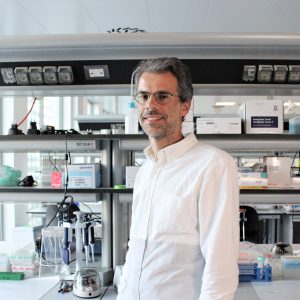 Nicola Crosetto
Nicola Crosetto
Senior Manager -
 Craig Glastonbury
Craig Glastonbury
Research Group Leader -
 Arianna Landini
Arianna Landini
Technician -
 Ivano Legnini
Ivano Legnini
Research Group Leader -
 Chiara Mantovani
Chiara Mantovani
Research Centre Administrator -
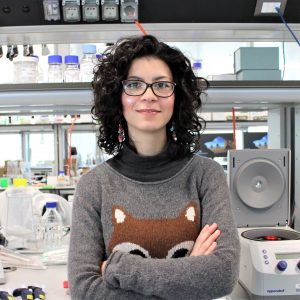 Chiara Medaglia
Chiara Medaglia
Lab Manager -
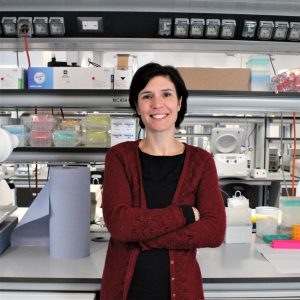 Simona Pedrotti
Simona Pedrotti
Senior Technician -
 Nicola Pirastu
Nicola Pirastu
Senior Manager -
 Rodrigo Pracana Fragoso De Almeida
Rodrigo Pracana Fragoso De Almeida
Senior Bioinformatician -
 Margarita Sabio Bonilla
Margarita Sabio Bonilla
Postgraduate Fellow -
 Sodbo Sharapov
Sodbo Sharapov
Statistical Geneticist -
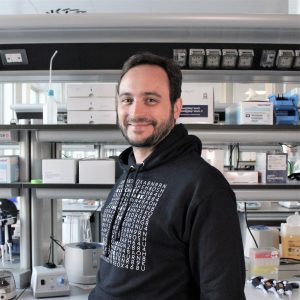 Manuel Tardaguila
Manuel Tardaguila
Staff Scientist -
 Wing Hin Yip
Wing Hin Yip
Scientific Visitor -
 Giulia Zunino
Giulia Zunino
Scientific Project Manager
Work with us
Postdoc - Soskic Lab Genomics Research Centre
Postdoc - RNA biology in B cells
Postdoc in Pangenomes - Soranzo group
Postdoc - Soranzo group - NeuroCOV project
Postdoc in Population-scale single cell genomics - Soranzo group
Group Leader in Functional Genomics - Human Technopole Centre of Functional Genomics

